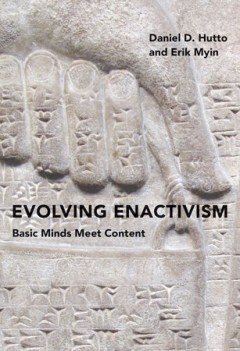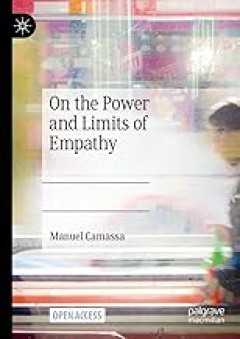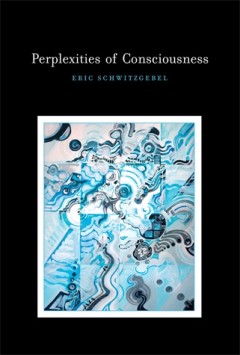Filter by

Giving a damn :essays in dialogue with John Haugeland
A collection of essays that use John Haugeland's work on intentionality, embodiment, objectivity, and caring to explore contemporary issues in philosophy of mind."In his work, the philosopher John Haugeland (1945-2010) proposed a radical expansion of philosophy's conceptual toolkit, calling for a wider range of resources for understanding the mind, the world, and how they relate. Haugeland argu…
- Edition
- -
- ISBN/ISSN
- 9780262335850
- Collation
- 1 online resource (vi, 373 pages)
- Series Title
- -
- Call Number
- -

Evolving enactivism :basic minds meet content
Evolving Enactivism" argues that cognitive phenomena - perceiving, imagining, remembering -- can be best explained in terms of an interface between contentless and content-involving forms of cognition. Building on their earlier book Radicalizing Enactivism, which proposes that there can be forms of cognition without content, Daniel Hutto and Erik Myin demonstrate the unique explanatory advantag…
- Edition
- -
- ISBN/ISSN
- 9780262339773
- Collation
- 1 online resource (xxvi, 328 pages).
- Series Title
- -
- Call Number
- -

The not-two :logic and God in Lacan
In The Not-Two, Lorenzo Chiesa examines the treatment of logic and God in Lacan's later work. Chiesa draws for the most part from Lacan's Seminars of the early 1970s, as they revolve around the axiom "There is no sexual relationship." Chiesa provides both a close reading of Lacan's effort to formalize sexual difference as incompleteness and an assessment of its broader implications for philosop…
- Edition
- -
- ISBN/ISSN
- 9780262335034
- Collation
- 1 online resource (xxiii, 251 pages).
- Series Title
- -
- Call Number
- -

Being and the screen :how the digital changes perception : published in one v…
OCLC-licensed vendor bibliographic record.
- Edition
- -
- ISBN/ISSN
- 9780262355780
- Collation
- 1 online resource (240 pages).
- Series Title
- -
- Call Number
- -

Thinking about oneself :from nonconceptual content to the concept of self
"In this book, Kristina Musholt offers a novel theory of self-consciousness, understood as the ability to think about oneself. Traditionally, self-consciousness has been central to many philosophical theories. More recently, it has become the focus of empirical investigation in psychology and neuroscience. Musholt draws both on philosophical considerations and on insights from the empirical sci…
- Edition
- -
- ISBN/ISSN
- 9780262329767
- Collation
- 1 online resource (xviii, 210 pages)
- Series Title
- -
- Call Number
- -

Scaffolded minds :integration and disintegration
A comprehensive account of cognitive scaffolding and its significance for understanding mental disorders.OCLC-licensed vendor bibliographic record.
- Edition
- -
- ISBN/ISSN
- 9780262353830
- Collation
- 1 online resource (288 pages).
- Series Title
- -
- Call Number
- -

Ins Philosophieren finden mit Kürzesttexten
Das vorliegende Open-Access-Buch zeigt, wie Kinder im Grundschulalter auf philosophische Gedanken reagieren. Diese werden den Kindern in Form von Kürzesttexten dargeboten. Auf Veranschaulichungen wird bewusst verzichtet. Dieser Zugang zum Philosophieren erscheint ungewöhnlich, wird doch in der Regel beim Philosophieren mit Kindern auf anschauliche Zugänge zurückgegriffen. Es zeigt sich jedo…
- Edition
- -
- ISBN/ISSN
- 978-3-662-67978-4
- Collation
- XIII, 442
- Series Title
- -
- Call Number
- -

Postdigital Participation in Education
This open access book examines the interrelations and correlations of the postdigital condition and its relationship to education, with a particular focus on participation. Contributions reflect on how educational institutions are affected by the recent transformations of media technologies and practices, and how at the same time institutions such as schools and universities are supposed to ena…
- Edition
- -
- ISBN/ISSN
- 978-3-031-38051-8
- Collation
- XXV, 250
- Series Title
- -
- Call Number
- -

On the Power and Limits of Empathy
This book has two main objectives. The first is to identify and adequately describe the phenomenon of empathy. This essentially means offering a strong, reasoned and accurate description of the phenomenon of empathy in order to capture the essence of the empathic phenomenon and clearly distinguish it from other similar emotional phenomena such as sympathy or compassion The second part focuse…
- Edition
- -
- ISBN/ISSN
- 978-3-031-37521-7
- Collation
- XIV, 374
- Series Title
- -
- Call Number
- -

Perplexities of Consciousness
"A Bradford book."In this book, the author examines various aspects of inner life (dreams, mental imagery, emotions, and other subjective phenomena) and argues that we know very little about our stream of conscious experience. In fact, he contends, we are prone to gross error about our ongoing emotional, visual, and cognitive experiences.OCLC-licensed vendor bibliographic record.
- Edition
- -
- ISBN/ISSN
- 9780262295338
- Collation
- 1 online resource (xii, 225 pages) :illustrations.
- Series Title
- -
- Call Number
- -
 Computer Science, Information & General Works
Computer Science, Information & General Works  Philosophy & Psychology
Philosophy & Psychology  Religion
Religion  Social Sciences
Social Sciences  Language
Language  Pure Science
Pure Science  Applied Sciences
Applied Sciences  Art & Recreation
Art & Recreation  Literature
Literature  History & Geography
History & Geography